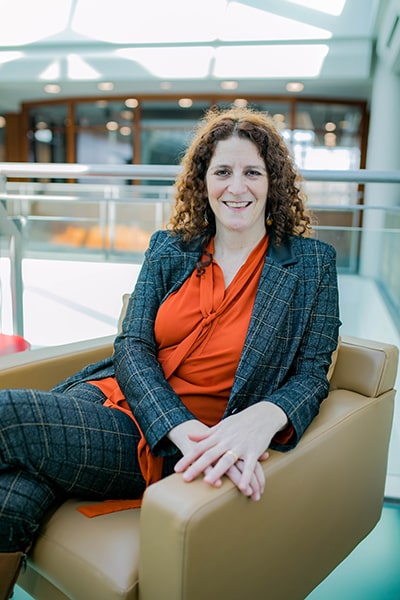Faculty Spotlight: Michal Friedman
By Stacy Kish
Michal Friedman is the Jack Buncher Endowed Chair in Jewish Studies and specializes in Jewish diasporic history, especially that of Sephardi Jews and in Spanish history and culture.
Tell me about your scholarly work.
My work stands at the crossroads of Jewish and Iberian history. I examine modern Spain’s ambivalent attempts to reclaim its Sephardi Jewish past and Sephardi Jews beginning in the late 18th century through today. I explore the ways this history has been mobilized by Spaniards and Jews alike, in the elaboration of diverse ideologies and political movements, including Liberalism, Fascism and Zionism and in neo-imperial designs designed to expand Spain’s national borders, including through older and recent Spanish citizenship campaigns aimed at reincorporating Sephardi Jews into the Spanish nation.
How is your scholarly work adding to the greater field?
Within Jewish history, studies of the Iberian peninsula have traditionally focused on the medieval period. My work thus contributes to an emergent incorporation of the Iberian peninsula into geographies of modern Jewish history and to an integrated approach, which examines Iberian and Jewish histories as entangled histories. My work also expands on studies of Spanish neocolonialism in Morocco and the Balkans, as well as of the Sephardi diaspora and its relationship to Spain. Finally, my examination of Spain’s modern Jewish community illuminates older diasporic structures of Jewish vertical alliances with state officials, as well as horizontal alliances with other minorities.
How did you become interested in this topic?
I became interested in this topic when I spent a year studying in Spain during college. I became intrigued by the fascination with Spain’s Jewish past that I encountered there, as well as by how this interest was often marked by ambivalence, as such interest was stimulated by my encounters with members of Spain’s Jewish community, with Spanish students of well-established Sephardi Studies programs at Spanish universities, conflicting popular narratives about this history, as well as by a history courses on the Spain’s rich Muslim and Jewish history and its influence on modern and contemporary Spain. I decided to turn back to the past to examine the origins of this acute interest and why it was marked by ambivalence.
What are you most excited to accomplish as a faculty member at CMU?
In addition to my research, I hold the Jack Buncher Endowed Chair in Jewish Studies. I am excited to build Jewish studies at CMU through programming and collaboration with different faculty members and students across the campus and the Pittsburgh area.
I work closely with Centropa, a Jewish oral history archive. Much of the programming I am working on at CMU is meant to promote the archive, through public history projects and programs, which lends itself to rich interdisciplinary collaboration throughout the university. I am currently working with a colleague and students in the School of Drama on the production of a theatrical piece that draws on oral histories from Centropa and oral histories gathered by Centropa.org from their Holocaust educators and students in Ukraine in response to the Russian invasion of the country in February 2022.
I have also collaborated with Centropa.org on the development of a walking tour app of Belgrade’s historic Jewish neighborhood and a connected set of podcasts. The tour is based on the Centropa oral histories, which includes the story of Belgrade’s Sephardi community and of the Holocaust in Serbia. For this project, I worked with students at the CMU School of Drama who contributed dramatized readings to annotate the walking tour and a history undergraduate student who helped research memoirs on WWII in Belgrade to supplement the oral histories. The sound design was conducted in collaboration with the CMU Entertainment and Technology Center.
What are your goals for the next generation of scholars?
I would encourage future scholars in Jewish history to draw on their scholarly research to create public-facing history programs. As scholars, we need to continue to think about how to engage broader audiences through our research in creative ways. This is particularly important for Jewish history considering the re-emergence of antisemitism and other connected forms of racism and hatred, general ignorance about the richness and diversity of Jewish history and the challenges we face around Holocaust memorialization as the last survivors are passing away.
The Faculty Spotlight series features new and junior faculty at the Dietrich College of Humanities and Social Sciences at Carnegie Mellon University. Stay tuned for our next installment to learn more about the dynamic and engaging research and scholarly work being conducted in the college.
